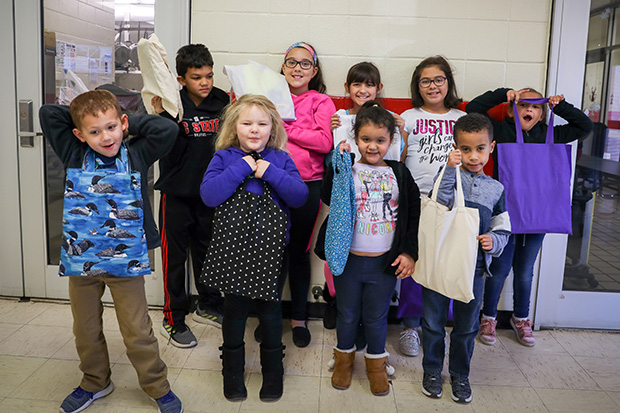Historic Hurricane Florence made landfall in the Carolinas on September 14, 2018. In the following days, Florence became the wettest tropical cyclone to ever hit this region causing (according to NOAA) an estimated $24 million in damages and 53 deaths.
In the early days after the hurricane’s landfall, CWS began sending kits and blankets to local agencies providing relief assistance to the local community. In total, CWS shipped more than 55,000 kits and blankets valued at nearly $2,000,000.
In addition to this assistance, the CWS Domestic Disaster Team assessed the needs of the immigrant & refugee communities in North Carolina. In partnership with two local agencies serving the farm worker population and migrant youth, Migrant Education Program of Robeson County and East Coast Migrant Head Star Project in ten counties, these Hurricane Florence survivors have been able to replace, and continue to replace, very basic household items such as: clothes, shoes, furniture, bedding, housing supplies and food. Thanks to contributions through the CWS 2018 Hurricane Appeal, and donors such as American Red Cross, these partners have received grants valued at more than $70,000 resulting in direct assistance more than 600 people. Additionally, CWS also has been providing mentoring and technical support to two Long-term Recovery Groups in North Carolina: the Cumberland Disaster Recovery Coalition in Fayetteville and the Robeson County Disaster Recovery Committee, whose combined outreach extends to more than 18,000 survivors since Hurricane Florence.
A specific focus on preparedness has also been made after several immigrant communities explained their difficulties in accessing basic information and services before, during and after a natural disaster. Our local Disaster Preparedness and Response Specialist has organized training sessions and distributed prevention materials. She also engaged in many events to directly meet with local communities, such as the First Annual Robeson County Disaster Preparedness Expo in August. In doing so, her role is to connect with immigrant and refugee communities impacted by the hurricane, in order to learn more about their specific needs and be able to respond to them adequately.
Unfortunately, one year later, many families continue to struggle with mold remediation, home rebuilding and repair as well as needs for basic housing supplies such as bedding. While a considerable number of farm workers lost work opportunities due to crop damages, food and clothing are also a daily concern for so many people. That is why CWS will continue its efforts to raise and channel funds to ensure that the most vulnerable populations recover completely from Hurricane Florence, and become more resilient in the face of future disasters.

